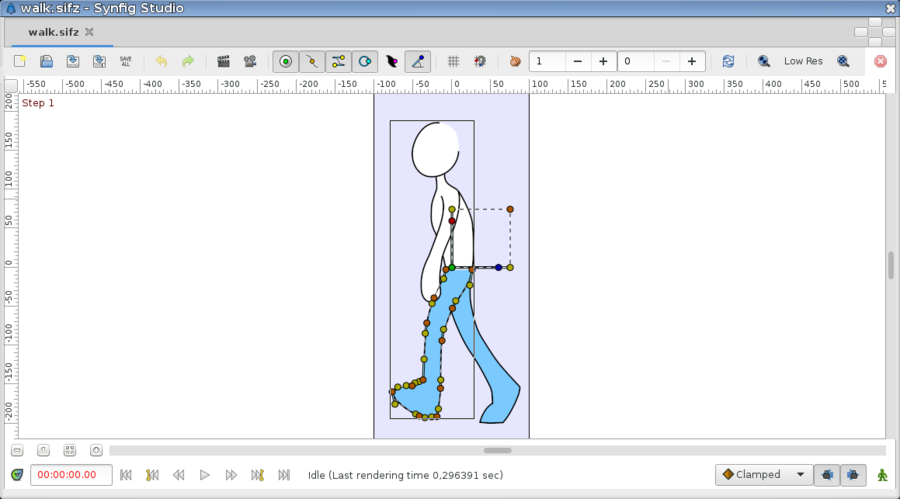Difference between revisions of "Canvas"
m (Text replace - "{{Category|NewTerminology}}" to "{{NewTerminology}}") |
Hellocatfood (Talk | contribs) (Added description of how to create a canvas) |
||
| (6 intermediate revisions by 2 users not shown) | |||
| Line 5: | Line 5: | ||
<!-- Page info end--> | <!-- Page info end--> | ||
| − | A canvas is simply an ordered list of layers. When you {{l|Group}} a set layers, you are making a new Canvas, putting the grouped layers into that new canvas, removing them from the Canvas they were previously in, and replacing them with a new {{l|Group Layer}}. The new {{l|Group Layer}} has a parameter called {{Literal|Canvas}} which has the new {{l|Group Layer|}} name as its value. | + | A canvas is simply an ordered list of layers. When you {{l|Group}} a set of layers, you are making a new Canvas, putting the grouped layers into that new canvas, removing them from the Canvas they were previously in, and replacing them with a new {{l|Group Layer}}. The new {{l|Group Layer}} has a parameter called {{Literal|Canvas}} which has the new {{l|Group Layer|}} name as its value. |
| − | Canvases can be {{l|Export|exported}}, which adds them to the {{l|Canvas Browser Panel}}, from where they can be edited separately in their own workarea. | + | Canvases can be {{l|Export|exported}} (the name must not contains space or :#@$^&()* characters) , which adds them to the {{l|Canvas Browser Panel}}, from where they can be edited separately in their own workarea. |
Sub-canvases can in turn be exported from these new workareas, building up a tree of canvases. | Sub-canvases can in turn be exported from these new workareas, building up a tree of canvases. | ||
| − | [[File:Canvas 0 | + | [[File:Canvas 1.0.png|900px|thumb|center|The {{l|Category:Canvas_Window}} showing the actual {{l|Canvas}}]] |
| + | |||
| + | == Creating a new Canvas == | ||
| + | Canvases can be created by right-clicking on the Canvas parameter of a Group layer and choosing Export Value. | ||
| + | |||
| + | In the dialogue that appears enter a name for your new canvas. | ||
| + | |||
| + | The canvas will now be created in the Canvas Browser to the right of the screen. Double-clicking on the canvas name will open the canvas, which contain all of the layers that are part of the original Group | ||
| + | |||
| + | ==See also== | ||
| + | {{l|Canvas_Properties_Dialog}} | ||
Latest revision as of 01:16, 20 December 2019
A canvas is simply an ordered list of layers. When you Group a set of layers, you are making a new Canvas, putting the grouped layers into that new canvas, removing them from the Canvas they were previously in, and replacing them with a new Group Layer. The new Group Layer has a parameter called "Canvas" which has the new Group Layer name as its value.
Canvases can be exported (the name must not contains space or :#@$^&()* characters) , which adds them to the Canvas Browser Panel, from where they can be edited separately in their own workarea.
Sub-canvases can in turn be exported from these new workareas, building up a tree of canvases.

Creating a new Canvas
Canvases can be created by right-clicking on the Canvas parameter of a Group layer and choosing Export Value.
In the dialogue that appears enter a name for your new canvas.
The canvas will now be created in the Canvas Browser to the right of the screen. Double-clicking on the canvas name will open the canvas, which contain all of the layers that are part of the original Group